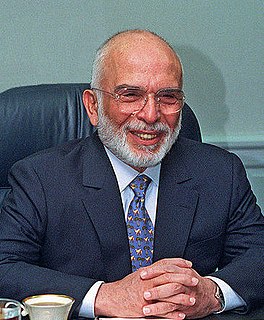Цитата Анни Безант
Быстрое осуждение всего, что не наше, взглядов, с которыми мы не согласны, идей, которые нас не привлекают, есть признак узкого ума, необразованного ума. Фанатизм всегда невежественен, и мудрец, который станет мудрецом, пытается понять и увидеть истину в идеях, с которыми он не согласен.
Связанные цитаты
Нет человека... каким бы мудрым он ни был, который в какой-то период своей юности не говорил вещей или не прожил жизнь, воспоминание о которой ему так неприятно, что он охотно изгладил бы ее. И все же он не должен полностью сожалеть об этом, потому что он не может быть уверен, что он действительно стал мудрецом, - насколько вообще возможно быть мудрым для любого из нас, - если он не прошел через все глупые или нездоровые воплощения, которые должны предшествовать этой конечной стадии.
Много было сказано об одиночестве мудрости и о том, насколько искатель Истины становится пилигримом, странствующим от звезды к звезде. Для невежественного мудрец одинок, потому что пребывает на далеких высотах ума. Но сам мудрец не чувствует себя одиноким. Мудрость приближает его к жизни; ближе к сердцу мира, чем может быть глупый человек. Книжность может привести к одиночеству, а ученость может закончиться борьбой верований, но мудрец, глядя в пространство, видит не пустоту, а пространство, полное жизни, истины и закона.
Правда имеет силу. И если мы все тяготеем к схожим идеям, может быть, мы делаем это потому, что эти идеи верны... записаны глубоко внутри нас. И когда мы слышим правду, даже если мы ее не понимаем, мы чувствуем, что истина резонирует внутри нас... вибрирует с нашей бессознательной мудростью. Может быть, истина не познается нами, а наоборот, истина припоминается... припоминается...-познается... как то, что уже есть внутри нас.
Ум — это двойственность; он всегда разделен. Не существует единого пункта, с которым разум полностью соглашается. Половина ума согласится, а половина ума не согласится, и что бы вы ни выбрали, вы выбираете только половину. Оставшаяся половина собирается мстить. Невыбранная часть, оставшаяся часть, будет ждать своего шанса, чтобы показать вам, что все, что вы выбрали, неправильно. Но неважно, какую часть вы выберете. Сам выбор неправильный.
единственный способ, которым человек может хоть как-то приблизиться к познанию предмета в целом, — это выслушать, что о нем могут сказать люди самого разного мнения, и изучить все способы, которыми на него может смотреть каждый. характер ума. Ни один мудрый человек никогда не приобретал свою мудрость каким-либо иным способом, кроме этого; и не в природе человеческого интеллекта становиться мудрым каким-либо иным образом.
ПОЭТ Дитя угрюмое и дико мудрое Преследовало игру радостными глазами, Которые избирали, как метеоры, свой путь И частным лучом разрывали тьму: Они перепрыгнули через край горизонта, Исследуя с привилегией Аполлона; Сквозь мужчину и женщину, и море, и звезду, Увидел танец природы далеко вперед; Сквозь миры, и расы, и термины, и времена, Видел музыкальный порядок и парные рифмы. Олимпийские барды, которые воспевали Божественные идеи внизу, Которые всегда находят нас молодыми И всегда сохраняют нас такими.
Это невежество, которое временами непостижимо для мудрого; например, он может не видеть «положительного человека» или «отрицательного человека» в черно-белом свете, как это делают многие люди. Мудрый человек может не понять этого, потому что, как катализатор мудрости, но не мудрый в своих глазах, даже он может учиться у глупцов и отдавать им. Думать, что человеку абсолютно нечего предложить к столу, противоречит интуиции, что мудрый человек считает «невежеством безнадежности».
В последние годы мы были очарованы собственным прошлым успехом. Убаюканные блеском собственных достижений. Мы привыкли к званию Военной сверхдержавы, забывая о тех качествах, благодаря которым мы его получили. Мы привыкли к нашему экономическому господству в мире, забыв, что не безрассудные сделки и схемы быстрого обогащения привели нас туда, где мы есть, а упорный труд и умные идеи, качественные продукты и разумные инвестиции.







































